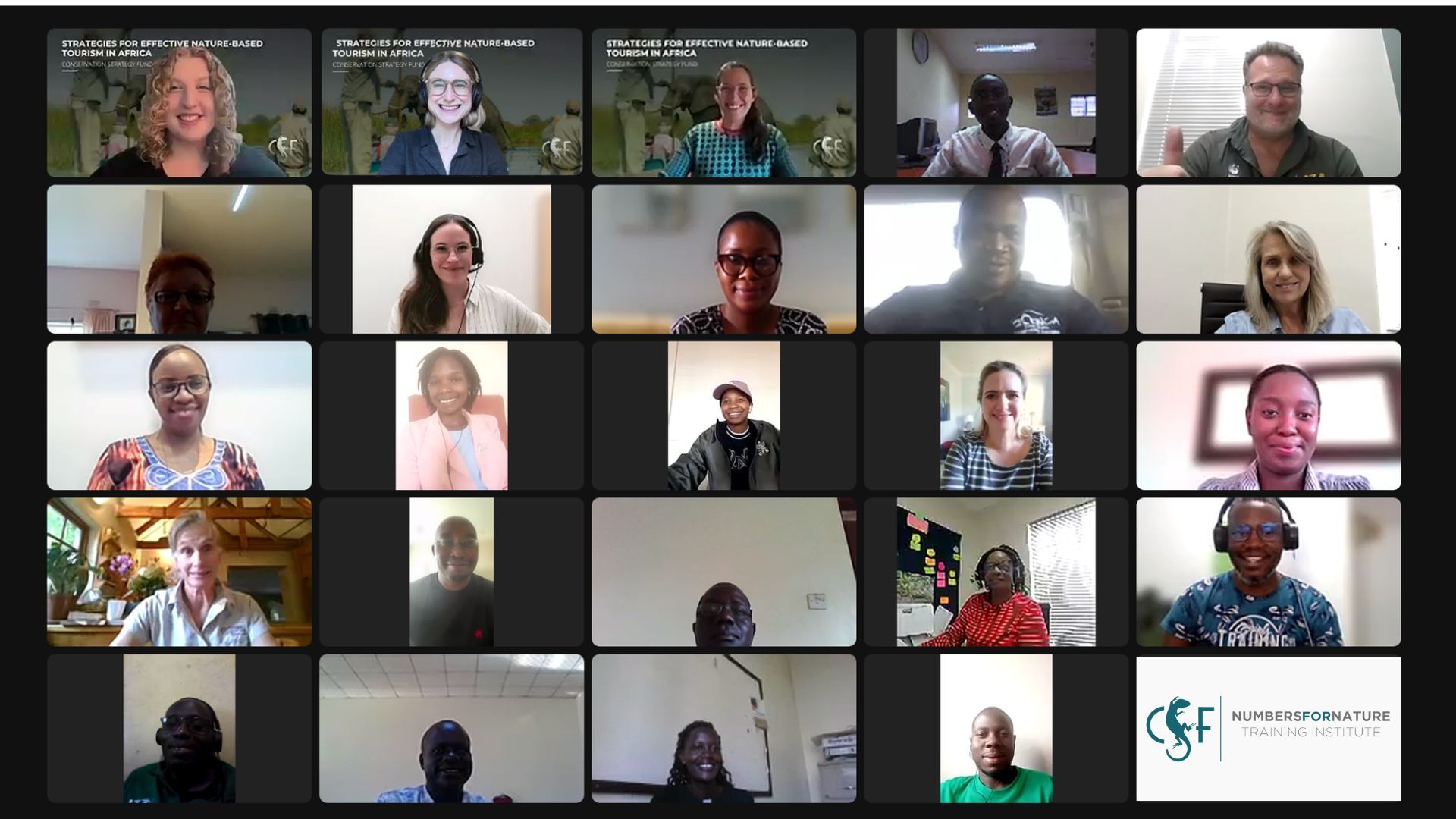Building Strategies for Effective Nature-Based Tourism in Africa

Capacity-building in conservation economics and finance can help conservationists keep their projects resilient and cost-effective. With a solid foundation in market theory, natural resource management and environmental valuation - among other economic principles - conservationists can expand their scope of work, identify financing opportunities, and better communicate the economic value of the services they provide, and of the natural environment they are protecting.
CSF’s latest in-house training, Strategies for Effective Nature-Based Tourism in Africa, was uniquely designed by Conservation Strategy Fund with the support of World Wildlife Fund to build capacity among the African Nature-Based Tourism Platform’s partner organizations in communicating the value of their natural resources and nature-based activities. Course participants learned key economic and finance concepts that they can apply in their everyday work to help them speak the language of decision-makers.
The course was composed of 39 participants, representing 21 organizations and 9 countries across the African continent including Zambia, Malawi, Uganda, Botswana, Mozambique and Tanzania.
After participating in the course, participants self-reported feeling confident in their economics understanding, and all participants rated the course a 9/10 in terms of value and in their likelihood of recommending it to a colleague.
One course participant, Antoinette Van Niekerk from Africa!gnite in South Africa, shared the following feedback:
“From taking this course on nature-based tourism strategies, I've gained valuable insights into sustainable practices, community engagement, and the economic impact of tourism on natural environments. It has broadened my understanding of how to balance tourism development with conservation efforts, ensuring long-term benefits for both visitors and local communities.”
For most participants, taking this course is only the beginning of their journey exploring economics and finance in their conservation and nature-based tourism work. We hope that as this cohort joins our global community of alumni applying economic thinking to conservation, they will continue to promote the use of economic tools within the conservation sector, building expertise, generating objective evidence, and improving sustainable development policies on the continent.
- Log in to post comments

